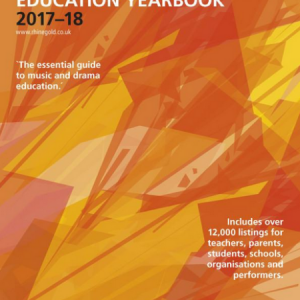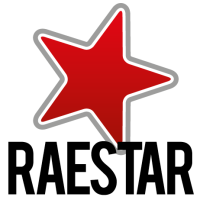Jazz Promotions, Consultancy, Project Management, Agency
TIPS FOR MUSICIANS

Over the years I’ve worked with many of this country’s most prolific jazz artists, both as a manager and an agent. In the process I’ve learned that successful gig procurement is as much about marketing and promotion as it is about great music. Sadly – pop-sensibilities have infected the jazz world and there’s no getting away from it. Whenever I am asked about how I get so many bookings for my artists I tell them that my technique involves implementing a sustained but elegant PR campaign well in advance of actually getting in touch with a promoter – something that any manager/agent/artist can do for themselves without a huge financial outlay.
GETTING THE PROMOTERS ONSIDE
Promoters generally will not book an act that they’ve never heard of full stop. I should emphasize that I’m targeting this article to – you – the performer – who already has a reasonable profile but is grappling with the frustrating fact that there are just too many jazz acts chasing shrinking numbers of jazz gigs. Needless to say this is due to funding cuts and general economic malaise. Your PR campaign should be specifically aimed at promoters, artistic directors, programmers – whatever title they go by – in order to familiarise them with your particular USP– keeping your name top of mind so to speak. Too often artists concentrate their entire PR efforts on the jazz media – which is undoubtedly useful however by not allocating equal time to keeping promoters in the loop many artists miss out on range of opportunities. Here’s what I advise:
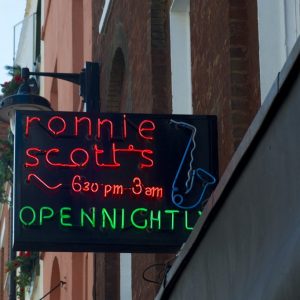
YOU NEED TO HAVE A STRATEGY
Firstly compile a list of promoters’ details especially their email addresses (see bullet-point list below) which is a bit time-consuming but will be an on-going process (never-ending actually). Now this is the important bit: Whenever you have ANY significant news ie album release , awards, award-nominations, prestigious gigs ie Glastonbury, London Jazz Festival, Glasgow Jazz Festival , you’re dating Miss Piggy – you get the gist – put together an attractive release (I send an e-flyer via the trackable Mad Mimi programme) and send it to your promoter list. Your e-flyer should be succinct, contain at least one photo, two media quotes, a media link (or proof of your claim), a high-quality, performance video link, your gig list and of course contact details, website etc. You might send e-flyers out to 500 contacts which only 50 will bother to open but then you know that there are 50 promoters who are at least marginally interested and potentially receptive to a follow-up by you or your agent. I try to get in touch with a warmed-up promoter within 2 days of sending an e-flyer – leave it any longer and they’re liable to forget the news and possibly you. It is helpful if your news coincides with prime booking periods* ‘but strike while the iron’s hot is generally my modus operendi. Below are various ways to compile your promoters list:
1. Check out the websites of other jazz artists (whose gigs you think you should have).
2. Check out jazz listings sections of magazines, newspapers (London Jazz, Jazzwise and Time Out are great), jazz websites etc.
3. Buy a copy of British Music & Drama Education Yearbook, (Rhinegold Publishing) and check out the Arts Festivals, many of which book at least one or two jazz acts. It also features many venues/events that you might not normally come across – very useful when planning a tour.
4. Research the various regional Arts Council websites to learn which venues have been awarded programming grants.
5. Local authority / council arts departments are generally au fait with local festival plans and in many cases are actively involved.
There are a myriad of ways of pursuing and capturing your quarry but I can’t overemphasize the effectiveness of a subtle but sustained PR campaign aimed specifically at promoters.
*Mid-January – mid-March for autumn/winter; mid-May-August for spring/summer; mid-November-Feb for summer festivals
Image © Rhinegold Publishing…
QUALITY VIDEOS RULE
Presentation is everything when you’re trying to sell your great self to over-subscribed promoters and press alike. No matter how talented you are – a shaky, dark and grainy video of your performance is amateurish and is not at all impressive to promoters and press who are swamped with offers from acts equally as accomplished as yours but who have invested in a decent video. Whilst the tiny HD ‘Flip’ video that I use to capture shows isn’t state-of-the-art it does the trick and has been invaluable in providing decent representation of my artists’ performances and enabling me to get bookings for my artists. Ideally you should hire a video professional to record one of your shows – it might initially feel prohibitively expensive but will pay dividends in helping to procure higher profile performance opportunities.
Alternatively many venues are providing an option to video-record your performance either for free or at a fraction of what a video company will charge so it’s worth checking it out before investing in a bespoke product. As long as the video is of good quality and representative of your band it needn’t be of Spielberg proportions. Bottom line is that a quality video, which impresses the media, could help you to get that all-important review which in turn could convert into bookings from promoters.
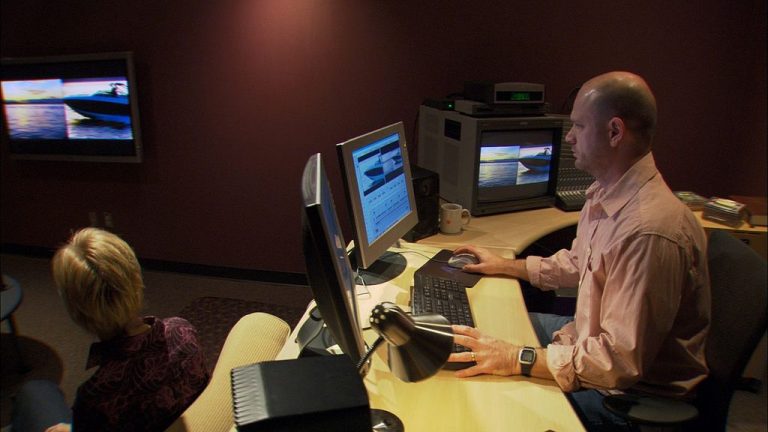
MARKETING TIPS

There’s no point spending years learning your craft and investing time and money on instruments, recording gear, rehearsal studios and even booking gigs only to fall down at the last hurdle by neglecting an element as important as marketing. I learned the hard way that you don’t have enough friends and family throughout the country to support your gigs. Marketing is often perceived as an expensive frill but this article details ways in which you can effectively promote your project without breaking the bank. Obviously there’s a cost associated with producing promotional materials, which is unavoidable, but there’s a lot that can be done for free and only requires some time and concerted effort. Compiling a comprehensive press list is an on-going process even for professionals – but is achievable by anyone especially nowadays with information so easily obtainable from the Internet. Armed with your press list and using common sense and employing a bit creative flair the look of your home-grown promotional campaign can rival that some of the professionals in the industry – I know because I’ve done it myself and if I can do it so can you.
Investing in a sustained marketing programme is one of the key aspects of getting ahead in this business. Scrimping in this area is a false economy because no matter how brilliant a musician or group is – if nobody as heard about your project it could crash and burn before take-off – that the sad reality. Promoters talk amongst themselves therefore news of no bums-on-seats spreads like wild-fire. There are ways around the tricky problem of a limited marketing budget one of which is grant funding . Yes, there’s free money out there that anyone can apply for. Read my article on ‘Funding’ for more information. As always if you require a bespoke consultation don’t hesitate to contact me on daniraestar@aol.com.
THE TAO OF WORKING WTTH PROMOTERS
It’s a sad fact that most jazz musicians don’t have the luxury of an agent working on their behalf and in addition to everything else they’re obliged to ‘beat the bushes’ and contact promoters to book their own gigs – not an easy task especially when they’re often competing with old boy networks and professional agents. But if you employ a bit of ingenuity and good timing it’s not impossible especially if you have something special to offer – which of course you do.
Firstly it’s important to lay the foundation before you call:
Ensure the promoter (or venue, festival booker) has been sent your recent bumph BEFORE you call (one of my e-blasts perhaps?) She might not have perused through it but at least you can say it’s been sent though you’ll probably have to resend.
Take some time to research the promoter’s name – you’ll have a better chance of being connected to the decision-maker if you ask for her/him by name as opposed to asking reception to identify the booker – chances are if they think you know the person in question you’ll be put straight through. If reception asks what it’s about simply say ‘programming’. Try to obtain the promoter’s direct line and in fact ask for it at the conclusion of the conversation – also their mobile number. If you’re actually contacted by a promoter use one of the caller ID programmes so that in future you can get ahold of these elusive creatures (especially when the world seems to want a gig and they’re approaching a brochure deadline with only a couple of slots left to fill).
When you finally have a promoter’s attention it’s advisable to initially enquire which period they’re programming – usually six to eight months into the future and determine if they’ve received your information: If they haven’t, ask for their email address and inform them that you’ll send the bumph immediately “so watch out for it” and will follow-up shortly thereafter. If they know your work, continue the conversation about their next programming period (using the industry word ‘programming’ makes you appear more professional and experienced at booking gigs.) Whatever you do don’t appear amateurish and ask for a gig within the season of your call unless you enquire if they might have a last-minute opening due to a cancellation – you never know – you might hit pay dirt!
Top Timing Tips
- Avoid calling on Monday mornings – for too many reasons to list here – just trust me.
- Many accessible promoters prefer to engage after 5:30 when they’re more relaxed and receptive.
- If a promoter asks you to call later because they’re in a meeting – do it because as you know they’re often not available – carpe diem and all that jazz.
- If you happen to be speaking to a promoter during a brochure deadline – cut the discussion short because they’re anxious and won’t be absorbing any of the conversation. They’ll also appreciate your consideration and will often suggest another time as a result.
- Avoid Friday afternoons as they are often involved in a band get-in.
- Avoid the last day – usually a Friday – before a bank holiday – they’re usually not around anyway and if so are distracted by urgent tasks they need to complete before their break – if they’re there in the first place (being in jobs with benefits they often arrange to combine accrued holiday days with official days off and many are away for two weeks!)
Don’t jump on a promoter on the first day AFTER a break because they won’t be a receptive as they might on the 2nd day after trawling through emails etc – you know how difficult it is to get back in the groove after being away.
Send emails early in the week as opposed to a Friday when they’ll often be buried by all the emails sent over the weekend.
After awhile you’ll get the hang of how promoters work in general and their individual idiosyncrasies. You’ll get over your trepidation and realize that in chasing him for a gig you’re actually doing a promoter a favor because a big part of their job is discovering great talent – namely you.
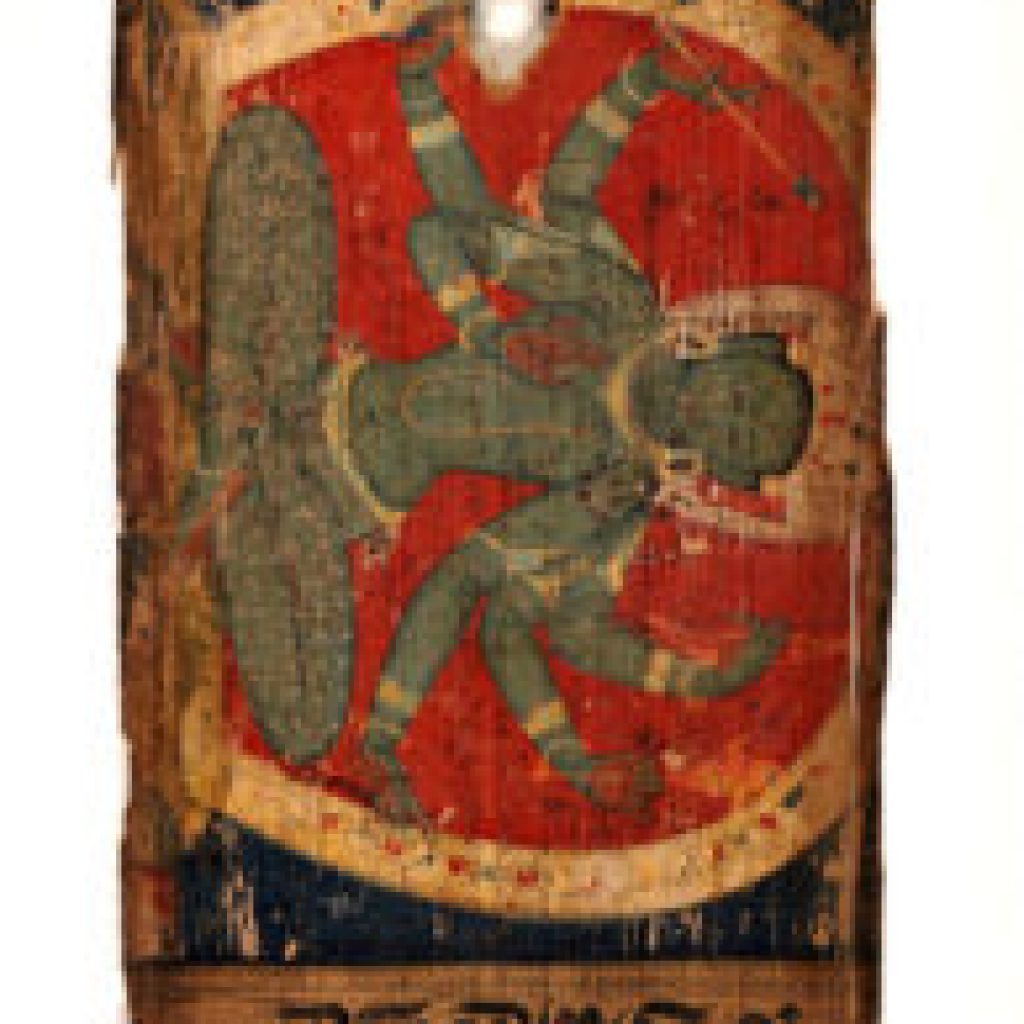
THE POWER OF A GREAT REVIEW


An enthusiastic industry press and/or nowadays blog review is the holy grail for any jazz musician whether they are rising or established. Attracting a journalist to a gig sometimes seems like ‘the chicken or the egg’ syndrome – especially if you are new on the scene or making a come back.
I always advise especially young and aspiring jazz musicians that along with quality photos and impactful videos a great review is an essential item in their marketing tool-box. But they’re not easy to procure. Beleaguered journalists are spoiled for choice and have to be convinced to choose one performance over another.
The ideal solution is to engage the services of a jazz niche PR professional – an individual who has established relationships with the jazz press over a number of years and is therefore a trusted source. Many musicians dismiss the idea as being prohibitively expensive when in fact a deal can always be done – especially in these hard times – for a 3 to 6 month contract – an outlay that can pay dividends if a valuable quote by a respected journalist convinces a promoter to book your act. If your cash-flow just won’t stretch to that sort of ‘luxury’ it’s not difficult to research key jazz press contacts and draft up a well-written press release yourself or invest in the relatively low cost of a press release service like my E-Blast or any number of similar ones out there (who’s details I’m understandably reluctant to divulge in this blog).
In addition to the details of your event the press release should provide pertinent contact details. If a journalist contacts you it’s important to offer free guest passes and if your budget permits even provide a drink or two. It’s acceptable to attempt to make personal contact either by email or telephone if there is a particular journalist that you’re keen to have in attendance – they’re often very approachable, empathetic individuals (many are musicians themselves) who love the music and appreciate the creative people who make it.
THE IMPORTANCE OF WINNING AWARDS
“Everybody loves a winner”…no truer words were ever spoken. From Big Brother, The X-Factor to Strictly Come Dancing it’s the element of competition that underpins popular culture – almost defines it. One of the first jobs I had in jazz management was with the formidable Janine Irons of Dune Records. When I arrived in 1999 Janine was in the throes of organising a campaign to gather votes for Denys Baptiste who was nominated for his wonderful debut album Be Who You Are. Janine’s determination and relentless campaign for votes ensured his victory and Denys’ career and profile had a massive boost as a result. Janine taught me a lot about winning and determination for which I will always be grateful.
When I struck out on my own in 2000 working with Dennis Rollins I found the going really tough because although he was recognised as a talented instrumentalist he didn’t have any ‘gongs’ for me to tout to promoters and the press. It was many years later in 2006 when Dennis finally won the BBC Jazz Award for ‘Best Band’ that things really began to move in the right direction for him profile-wise. Dennis subsequently won just about everything that was on offer – the Brtitish Jazz Award twice, Ronnie Scott’s Jazz Award in 2007, and the list goes on – even Doncaster’s Freedom of the Borough! I leveraged each gong of it marketing-wise and with the help of my talented PR professional – the late Helen Maleed – the news of Dennis’ success spread far and wide resulting in opportunites we could only have dreamed of prior to 2006.
I employed the same strategy with Empirical whom I managed from 2007 to 2011: When they didn’t win the prestigious Peter Whittingham Award the first time around in 2006 (they later won it in 2007) I scoured the internet and discovered a call-out for submissions for the inaugural European Broadcasting Union (EBU) Jazz Competition. Empirical made the cut and along with 4 other finalists participated in a nail-biting (for me anyway) competition at North Sea Jazz Festival in 2007. Long story short Empirical won, their lauded Courtney Pine-produced eponymous album was released three days later and the rest – including their MOBO jazz category award in 2010 – is history. It all helps the cause. Whether or not the award is prestigious like a MOBO or a little less high brow – a win is a win and gives the artist a good excuse to remind promoters why they should give them a gig and provides the press with a reason to come out to review it.
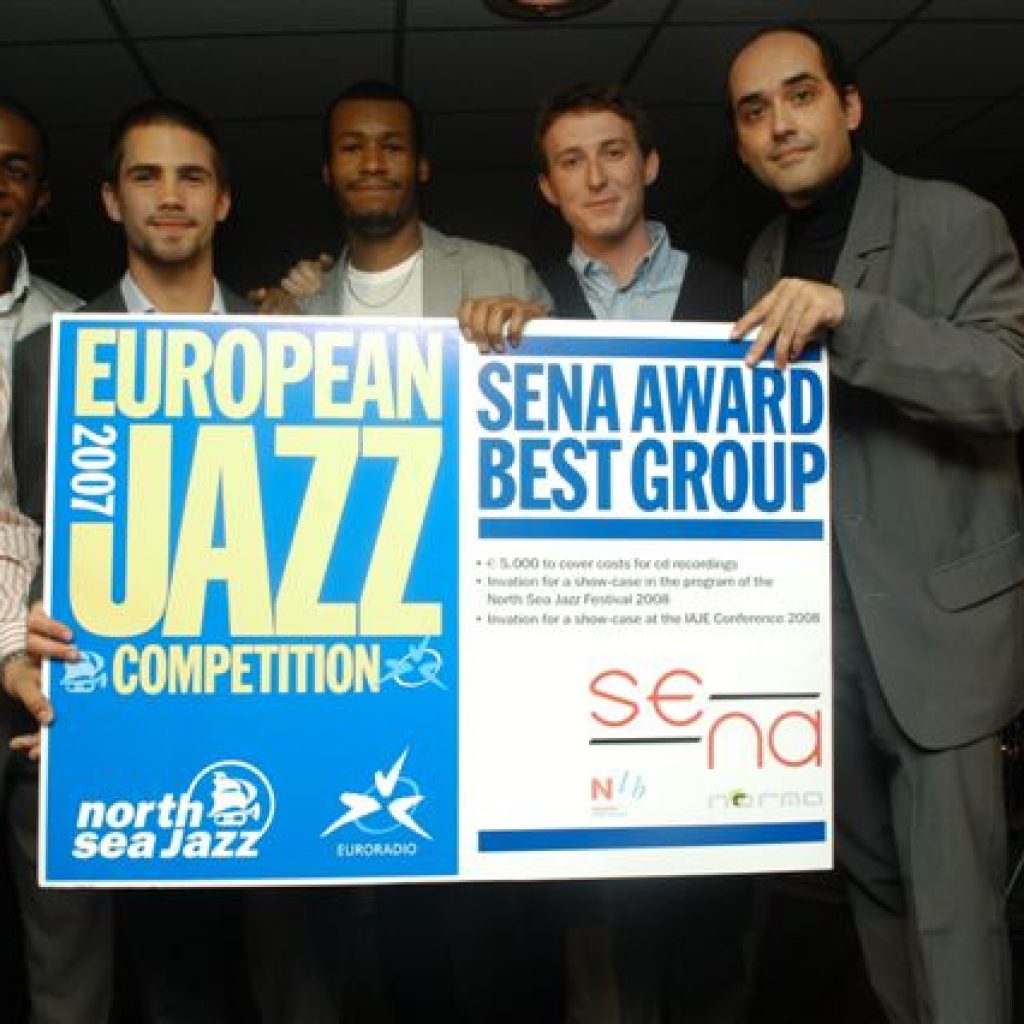
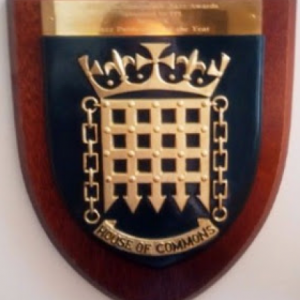
FUNDING GRANTS FOR JAZZ
Partial List of Funding Grants Available for the UK Jazz Industry
Without the financial assistance from various funding bodies most of the current high profile UK jazz musicians on the scene would have struggled to get their careers off the ground. Despite the government cut-backs resulting in a domino-effect of less money resulting in fewer jazz venues ergo fewer gigs…. at least the supply of funding grants hasn’t completely dried-up though admittedly there’s more competition for smaller pots. However I’m always amazed when jazz artists tell me that they’ve never applied for funding nor know how to go about it. Funding typically helps out with expenses associated with travelling, accommodation, marketing and promotion (very important), shortfalls for low gig fees and in some cases recording. Below are a few funding agencies and I’m sure that these are only a fraction of what’s on offer if you dig around.
Major UK Jazz Funding Providers
Arts Council England works to get great art to everyone by championing, developing and investing in artistic experiences that enrich people’s lives. We support a range of artistic activities from theatre to music, literature to dance, photography to digital art, and carnival to crafts. Great art inspires us, brings us together and teaches us about ourselves, and the world around us. In short, it makes life better.
www.prsformusicfoundation.com/
The PRS Foundation is now the UK’s largest independent funder solely for new music of any genre. Launched in March 2000, PRS Foundation (PRSF) is an independent charity Its main aims are to encourage, promote and stimulate the creation and performance of all genres of music and to help people have a positive experience of new music. Since its launch at Abbey Road studios in March 2000, PRSF has assisted over 800 organisations to the tune of nearly £4 million, supporting a diverse range of new music activities, including many unique and ground-breaking projects and collaborations. In addition, PRSF actively supports new music projects throughout the UK, which help to inspire musical creativity in young people. It does this through a wide range of funding schemes which each have their own application forms (all available from the website) and deadlines staggered throughout the year. The PRS Foundation prides itself on being a model of good practice within the arts funding system, with simple application forms, a fast turn around on decision-making and an open door policy.
Other Funders
http://www.creativescotland.com/
As long as your project is in Scotland and you’re using Scottish venues, outlets etc then you can apply to Creative Scotland who has a comprehensive funding scheme.
http://www.jerwoodcharitablefoundation.org/
The Jerwood Charitable Foundation works with professional artists across art forms, offering project and programme funding prioritising the development of talented and dedicated individuals at transitional stages of their careers.
HELP MUSICIANS
Help Musicians UK is the leading UK charity for professional musicians of all genres, from starting out through to retirement.
The Countess of Munster Musical Trust
http://www.munstertrust.org.uk
BANFF CENTRE FOR THE ARTS
Assistance available for UK musicians towards fees.
Contact: Registrar’s Office, box 1020, Station 28,107 Tunnell Mountain Drive, Banff,Alberta, Canada, T1L 1H5
Tel:(403) 762-6170 Email: arts_info@banffcentre.ca Website: www.banffcentre.ca
C.H. DIXON CHARITABLE TRUST
Funding for musicians of all ages in England.
Apply: R.M. Robinson, Messrs Dixon Ward, 16 The Green, Richmond, Surrey, TW9 1Qd
Crowd Funding
The success that many artists are having with crowdfunding can’t be understated. I personally know of several jazz artists who have partially funded their albums and tours with this modern new scheme and it also counts as a credible funding source for Arts Council of England grant applications. Here are a few:


